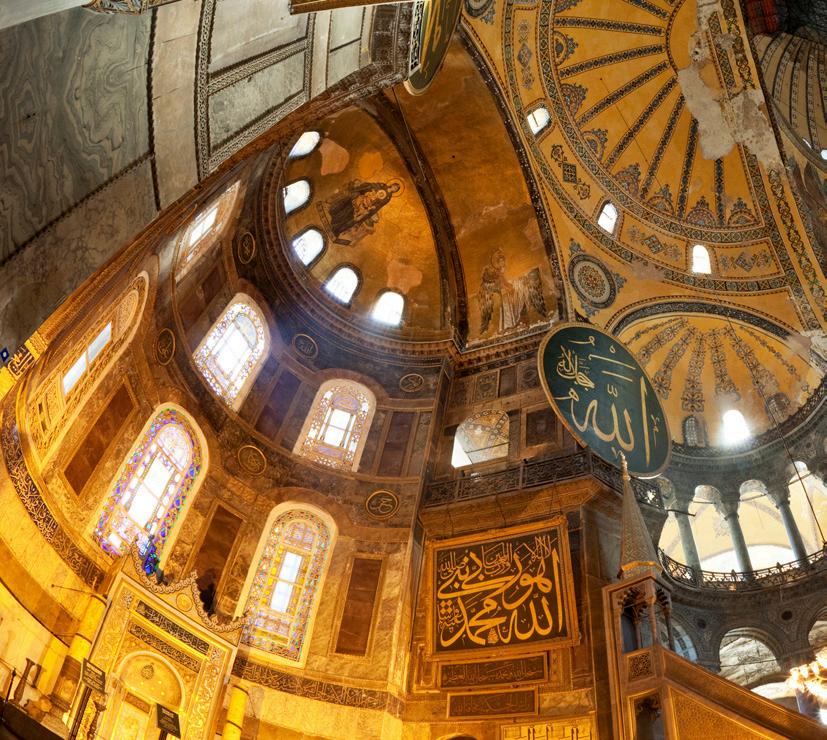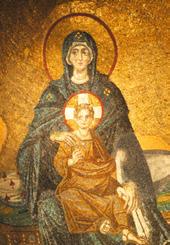
4 minute read
Islam, Muslims and the Gospel
By Dr. Adam S. Francisco
Islam is and will continue to be a hot topic when talking about religion. There are a number of reasons for this. First, is its historic and present connection to violence, and even though many often argue against this, it is the obvious one. Second, is the emergence of Muslim advocacy groups in the media.
Advertisement
However, the one that is sure to keep Christians interested in the discussion is the increasingly common assertion of Islam that it is a legitimate religious alternative to Christianity. In view of this, it is important that Christians understand Islam and equip themselves to address Muslims with the Gospel.
Islam is a relatively new religion. It began with the preaching of a man named Muhammad (570- 632 A.D.) in the Arabian town of Mecca. Although he was initially ignored and derided as an imposter, he was eventually acknowledged by those who became Muslims as a prophet through whom the creator of the universe spoke.
His message was recorded about twenty years after he died from the memories of his earliest companions in a book called the Qurán. Even though it is virtually impossible to verify its claims, Muslims regard it as the very word of God, wherein humans are taught how to order their lives in pursuit of and preparation for the “Day of Judgment.” Over and over it promises eternal life to those who believe in and submit to the law of Allah (an Arabic term for “God”), and threatens those who do not do so with eternal damnation.

Muslims regard Allah as absolutely sovereign, completely inimitable (or matchless), and essentially “one.” This, however, should not lead one to think that Muslims and Christians worship the same God. It is clear from the Qurán itself that Allah is quite different than the One True God. The Qurán rejects the holy Trinity and claims that Allah does not and cannot have a son.
The Qurán views Jesus as a mere human, and it in no way conceives of Him as the eternal Son of God. In fact, it considers the biblical teaching of Jesus’ divinity and the doctrine of the Trinity as a whole, to be an outright abomination.
The Qurán does consider Jesus to be a prophet, though. It even teaches that he was born of the Virgin Mary and assigns him the honorific title of Messiah. He does, however, play a different role as a prophet of Allah who taught Islam long before Muhammad, and, because Christians deviated from his teaching, they believe Jesus will eventually condemn Christianity.
This significant theological difference is equally matched by some of the differences in the narrative of Jesus’ life in the Qurán. For example, Jesus is said to have spoken to Mary immediately after He was born. It claims that He performed a number of miracles, including bringing to life a clay replica of a bird. And most troubling of all, it asserts that Jesus was not crucified but instead ascended into heaven while someone was crucified in His place.
It is this last detail that poses a tremendous barrier in Christian-Muslim discourse. For if Jesus did not die on the cross, the Gospel—the Good News that Jesus’ death and resurrection reconciled sinners to God—is unintelligible. Moreover, if Jesus did not die, then He did not rise from the dead. This, according to 1 Corinthians 15, renders the Gospel false.
So what’s the Christian to do who finds him or herself in conversation with a Muslim about religious matters such as these? First, we must not run or hide from having such conversations, regardless of how uncomfortable they may make us. Second—and this may seem counterintuitive—we must embrace such conversations, for these are the sorts of interactions that get to the heart of the matter.

It is a demonstrable fact of any normal approach to the events of history that Jesus was crucified on a Roman cross. Two eyewitnesses—Matthew and John—record it. Two companions of eyewitnesses to Jesus’ life—Mark and Luke—record it. The first and second century pagan and Jewish (respectively) Roman historians Tacitus and Josephus record it. It was, in the ancient world, a public fact (see Acts 26:26). There is no good factual reason to deny the crucifixion and death of Christ. The fact that the Muslim relies on a seventh century text like the Qurán betrays the ideological bias of someone who refuses to consider primary sources written much closer to the time when Jesus lived.
The question this begs to answer is: Why did Jesus die on the cross? There are lots of ways to answer this. Paramount in Christian-Muslim discourse is the legal answer. He had claimed to be coequal with God the Father. This, in the Jewish context of first century Palestine, was punishable by death, and is what led to His crucifixion.
But this is only half of the story. The Gospel writers claimed—from what they learned through the ministry of Jesus—that His life, death, and resurrection would take away the sins of the world.
Now, it is one thing to claim something. It is an entirely different thing to prove it. But Jesus did just this when He rose from the dead three days after His death. It is this event—also testified to by eyewitnesses—that serves as the final evidence of Jesus’ deity, as well as the proof that our sins have been forgiven and our justification has been made complete. This great news is not just for us, however. It is for the Muslim, too. May the Lord grant every Christian the courage and wisdom to declare this witness to Jesus when the opportunity presents itself!
Dr. Adam S. Francisco is an associate professor of history at Concordia University in Irvine, California. He can be reached at adamsfrancisco@aol.com










